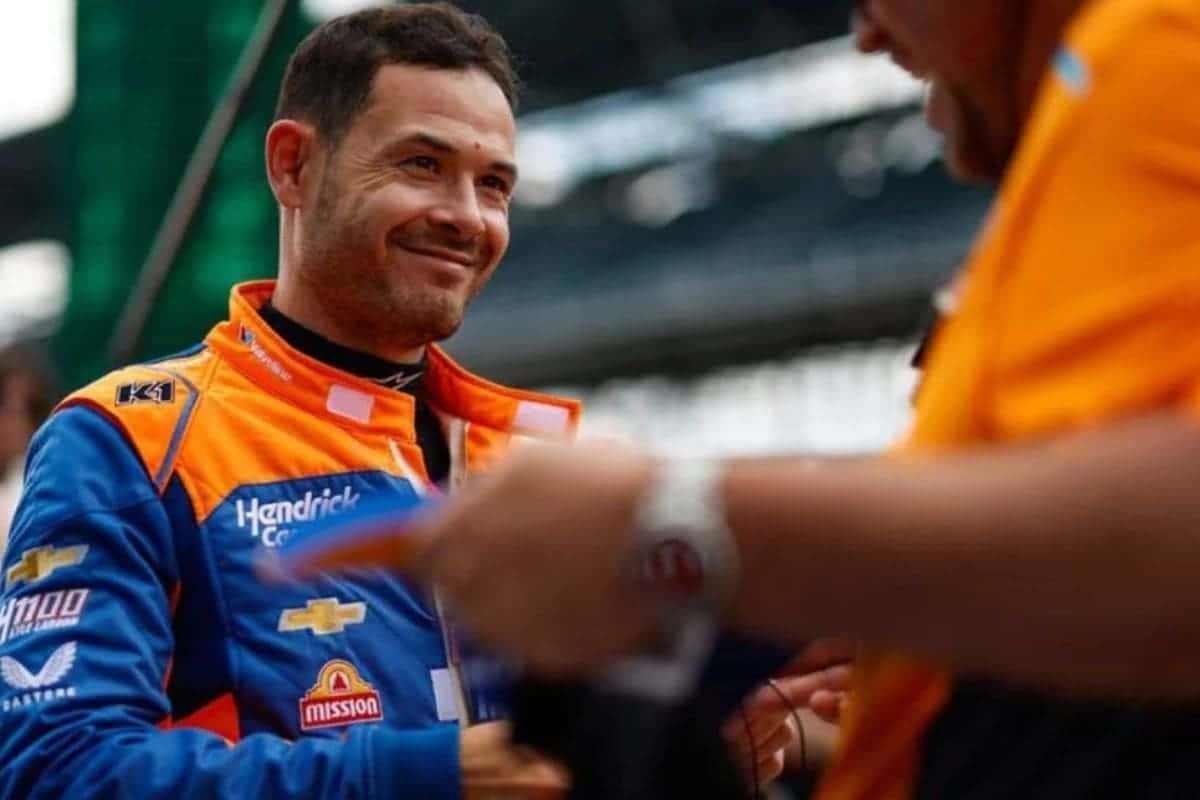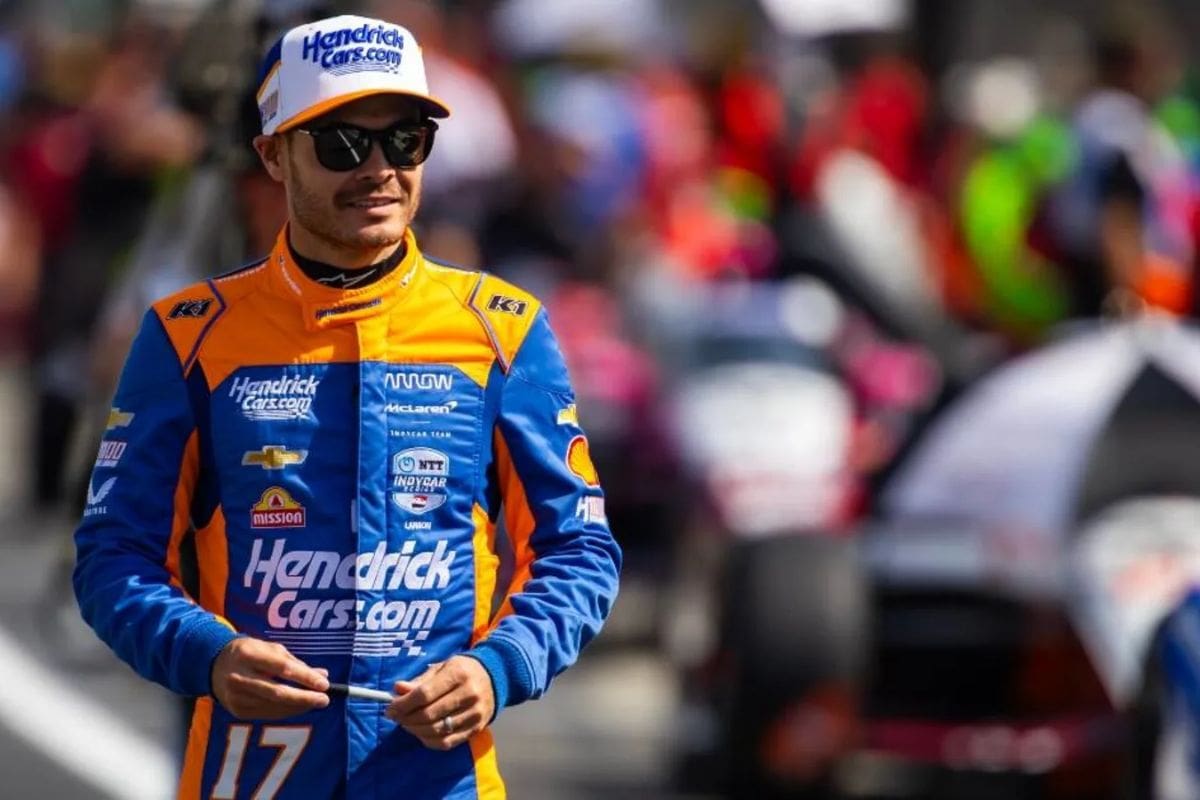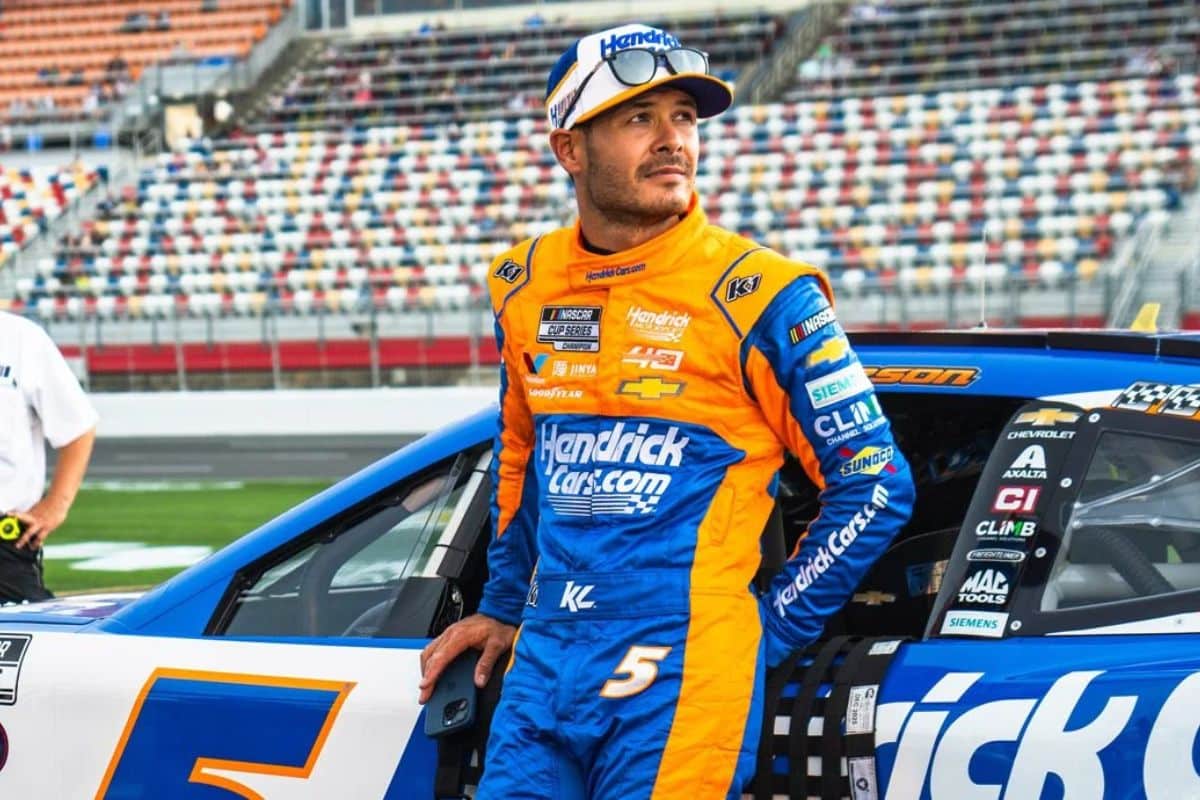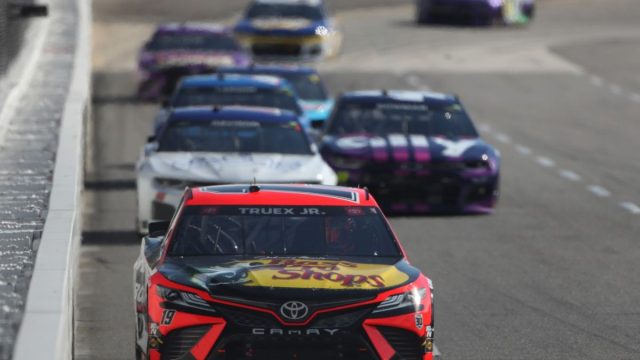Freddie Kraft Criticizes NASCAR: Freddie Kraft’s recent critique of NASCAR’s indecisiveness regarding Kyle Larson‘s playoff eligibility has sparked a significant debate within the motorsports community. By highlighting the strict regulations that govern driver participation, Kraft has emphasized the broader issue of how NASCAR’s policies may not adequately accommodate the complexities of modern racing schedules. His argument for granting Larson a waiver, based on his stellar performance, adds urgency to the discussion, pushing stakeholders to reconsider whether the current rules truly reflect the sport’s evolving dynamics.
Key Highlights
- Freddie Kraft criticizes NASCAR’s inconsistency in handling Kyle Larson’s waiver request.
- Kraft believes Larson’s exceptional performance warrants a playoff waiver despite scheduling conflicts.
- NASCAR’s rigid attendance rules clash with drivers’ multiple commitments, exemplified by Larson’s situation.
- Kraft argues that NASCAR needs to reassess its waiver policy for fairness and adaptability.
- The debate over Larson’s waiver reflects broader concerns about NASCAR’s regulatory integrity and flexibility.
Kyle Larson’s Playoff Conundrum
Kyle Larson’s playoff dilemma highlights the delicate equilibrium between NASCAR’s strict regulations and the unforeseeable nature of motorsports scheduling conflicts. Despite Larson’s notable achievements this season, including two race victories, his playoff prospects are now uncertain due to a decision prompted by an unpredictable weather-induced schedule clash.
Larson’s conundrum lies in his commitment to both the Indianapolis 500 and the Coca-Cola 600, two of the most prestigious races in motorsports. The inclement weather at Indianapolis led to an unexpected delay, forcing Larson to prioritize his participation in the Indy 500 over the NASCAR Cup Series race at Charlotte. This choice, although strategic, placed him at odds with NASCAR’s rigid attendance requirements for playoff eligibility.
Examining this scenario reveals the inherent tension between individual ambitions and institutional regulations. Larson’s decision highlights the broader challenge faced by drivers who juggle multiple racing commitments. The Indy 500, being a remarkable event with significant prestige, understandably attracted Larson’s focus. However, the repercussions of missing a NASCAR race due to such an overlap pose significant implications for his playoff standing.
NASCAR’s framework is designed to guarantee that drivers commit to the series’ schedule to maintain competitive integrity. Yet, this situation exposes a potential vulnerability in that framework, where extraordinary circumstances lead to potential penalties that might seem disproportionate to the infraction. Larson’s case exemplifies the unpredictable nature of motorsports scheduling and the difficult decisions drivers must make when faced with concurrent obligations.

NASCAR’s Rules and Larson’s Dilemma
Frequently, NASCAR’s strict rules, which mandate participation in all 26 races for playoff eligibility, clash with the unpredictable nature of motorsports, as exemplified by Kyle Larson’s recent scheduling conflict. This rule, crafted to guarantee a level playing field, often becomes a point of conflict when unforeseen circumstances arise, highlighting the tension between regulatory rigidity and the sport’s inherently variable environment.
Kyle Larson, a prominent figure in the NASCAR circuit, finds himself at the crux of this dilemma. The scheduling conflict that threatens his playoff eligibility emphasizes the inflexibility of NASCAR’s regulations. The rule requiring drivers to compete in all 26 races is intended to uphold competitive integrity and ensure that only those who have shown consistent performance over the season can compete for the championship. However, the rule does not account for the unpredictable factors that can disrupt a driver’s participation, such as personal emergencies or other professional commitments.
This situation raises significant questions about the balance between maintaining strict regulatory standards and providing flexibility for exceptional circumstances. Larson’s case is particularly compelling, given his stature and contributions to the sport. The current impasse forces NASCAR to reassess whether their rules adequately reflect the realities faced by drivers.
Debate Over Granting Kyle Larson a Waiver
The discussion around granting Larson a waiver highlights the intricacies ingrained in NASCAR’s regulatory framework, particularly when faced with unprecedented scenarios. NASCAR’s decision-making process in this case emphasizes the complexities involved in balancing consistency with fairness. Historically, waivers have been extended to drivers like Chase Elliott for a variety of reasons, including non-racing injuries and on-track misconduct. The case of Kyle Larson, however, introduces a novel issue, given his conscious choice to remain in Indianapolis with full knowledge of the implications.
Larson’s exceptional track performance alone should theoretically secure his playoff spot. Yet, his current standing remains uncertain due to the ambiguity surrounding his waiver status. This raises fundamental questions about the criteria and consistency of NASCAR’s waiver policy. Should performance and potential playoff impact weigh more heavily than the circumstances leading to the absenteeism?
Freddie Kraft’s critique reflects broader concerns within the racing community about NASCAR’s handling of this situation. The delay in decision-making not only impacts Larson but also sets a precedent for how similar situations might be navigated in the future. The debate thus revolves around whether NASCAR will prioritize maintaining a rigid regulatory stance or adapt to the unique context presented by Larson’s case. This decision is significant, as it will influence perceptions of fairness and regulatory integrity within the sport.

Support for Larson’s Waiver
Amid the swirling debate, Freddie Kraft’s endorsement of a waiver for Larson highlights a growing consensus within the NASCAR community that his exemplary track record should not be overshadowed by his out-of-race decision-making. Kraft, who serves as Bubba Wallace’s spotter, has articulated a sentiment echoed by many within the sport: Kyle Larson’s on-track talent and competitive spirit make him a formidable contender whose absence from the postseason would be a disservice to the integrity of the competition.
“Somebody clearly does not want to give it to him. I don’t know who that is but there’s somebody somewhere that clearly does not want to see. […] If it was up to me based on the brass tax of it I would say he doesn’t deserve a waiver but what you’ve done in the past can’t just dictate what you do in the future; you got to give him one I think.” – (Kraft)
The argument for granting Larson a waiver depends on a fundamental principle in sports—recognizing and rewarding skill and performance. Larson’s achievements this season have been nothing short of outstanding, with multiple wins and consistently high finishes that emphasize his skill and commitment. The waiver would serve as an acknowledgment of these accomplishments, ensuring that the postseason features the best drivers, irrespective of off-track issues.
“I don’t want him to get one by no means so I want him to get one because that eliminates a spot now we’re right now we’re three to the good three you know there’s two drivers behind us that would eliminate one if he gets it. But listen you this is the precedent you’ve set the guy got suspended he wasn’t injured he wasn’t this and you gave him a waiver. So, now all of a sudden because your feelings are hurt that he chose this race over your race like now you don’t want to give them one? I think somebody’s feelings are hurt.” – (Kraft)
Furthermore, the call for a waiver is not simply about Larson as an individual but also about maintaining the competitive standard of NASCAR. The playoffs are designed to highlight the peak of racing talent, and excluding a driver of Larson’s caliber due to strict procedural adherence could reduce the very essence of what the playoffs represent. This perspective is gaining traction among industry insiders, who demand for a more subtle approach that balances rules with the overarching goal of fostering competition.
Comments from NASCAR Figures
Voices from within the NASCAR community have increasingly weighed in on the issue, reflecting a spectrum of opinions regarding the potential waiver for Kyle Larson. The debate has elicited responses not only from industry insiders but also from prominent figures within the sport, such as Bubba Wallace and his team owner, Denny Hamlin.
“It’s ridiculous. I said this weekend in the media center that I thought the five teams made good-faith efforts to try to get him to Charlotte to run the double. Unfortunately, Mother Nature had its other plans and so, who knows? Who knows how this is gonna turn out. I think the longer it goes, the worse the news is going to be.” – (hamlin)
Denny Hamlin, known for his forthrightness, did not shy away from expressing his discontent, labeling the situation as ‘ridiculous.’ Hamlin’s concise, no-nonsense critique highlights a sentiment of frustration among some stakeholders, who perceive the waiver process as prone to inconsistency and bias. His perspective emphasizes a broader concern about fairness and transparency within NASCAR’s regulatory framework.
Does Kyle Larson deserve a waiver?@Kenny_Wallace asks Bubba Wallace & Erik Jones.
"He made a choice" pic.twitter.com/7a1QzoPjXL
— The Kenny Wallace Show (@KWallaceShow) June 2, 2024
Conversely, Bubba Wallace offered a more subtle viewpoint during his appearance on Kenny Wallace’s show. Acknowledging NASCAR’s historically lenient stance on waivers, Wallace emphasized personal accountability, noting, “He made the choice to run the Indy 500. He knew the weather was bad and knew all the stuff. Made a great attempt to get there. He made a choice.“ Wallace’s measured response suggests that while he recognizes the precedent for waivers, he also believes in the importance of individual decisions and their consequences.
This difference between Hamlin’s unequivocal disapproval and Wallace’s balanced appraisal epitomizes the broader discourse within the NASCAR community. It reveals an undercurrent of tension between maintaining tradition and adapting to contemporary challenges.

News in Brief: Freddie Kraft Criticizes NASCAR
The controversy surrounding Kyle Larson’s playoff eligibility highlights the tensions between NASCAR’s existing regulations and the evolving dynamics of modern motorsports. Freddie Kraft’s advocacy for a waiver reflects a broader call within the community for a more subtle and adaptable approach to driver participation rules.
This situation emphasizes the need for NASCAR to reassess its policies, balancing the enforcement of rules with the recognition of exceptional talent and dedication, to better align with the sport’s progressive landscape.
Our Reader’s Queries
Q: Does anyone care about NASCAR anymore?
A:Since its peak in 2005, NASCAR has experienced a gradual decline, with its TV viewership reaching record lows in 2018 and race day attendance also declining to record lows.
Also Read: Freddie Kraft Surprised by McDowell’s Move to Spire Motorsports
